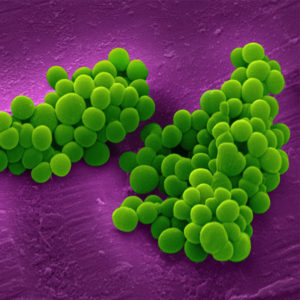Antimicrobial Resistance in Bacterial Pathogens - Africa
9–14 March 2024
National Institute for Communicable Diseases (NICD) - South Africa
Explore antimicrobial susceptibility testing techniques and how genomics can be applied to AMR surveillance
Summary
In collaboration with the National Institute for Communicable Diseases (NICD), South Africa, we are pleased to announce the Antimicrobial Resistance of Bacterial Pathogens course.
Antimicrobial resistance (AMR) is a global public health emergency, and threatens the safe delivery of modern medical care. A recent study estimated that there were 4.95 million deaths associated with AMR bacterial infections in 2019 with the majority of deaths occurring in sub-Saharan Africa (Murray et al, 2022). Global projections of the negative impact of AMR predict the loss of nearly 10 million lives per year, and a cumulative loss of global production up to 100 trillion US dollars by 2050. AMR requires immediate, concerted, international, collaborative action to monitor its prevalence and spread throughout the world. The importance of this has been recognised both by the United Nations, and by the World Health Organisation; the latter has published a list of priority pathogens and a global strategy for AMR surveillance.
The challenges of controlling AMR in Africa are considerable for a number of reasons, including overuse and misuse of antibiotics, lack of antimicrobial policies or stewardship programmes, limitations in data infrastructure and information sharing on antimicrobial prescription, consumption. Workforce capacity challenges and resources are major factors impacting on quality of data and subsequent care. In addition, there is limited knowledge of pathogen strains and AMR gene carriage due to lack of consistent and comprehensive AMR surveillance, making it difficult to track transmission, evaluate risks, detect and control outbreaks in hospitals and communities. To develop capacity for effective control of AMR, multi-disciplinary approaches are needed. Technologies such as whole genome sequencing, bioinformatics and data science tools are revolutionising routine diagnostics and surveillance of disease causing pathogens.
The aim of this course is to improve skills for effective AMR detection and develop capacity for genomic surveillance of AMR. It will provide a basic introduction and practical training in the laboratory aspects of AMR detection (phenotypic and molecular testing) in bacteria. The course will integrate theoretical aspects on the evolution and spread of AMR and explore the use of whole-genome sequencing and bioinformatics analysis and methods for AMR surveillance and control.
Target audience
This week-long course is free to attend and open to applicants based in Africa who are actively engaged in, or soon to commence research or work in antimicrobial resistance related fields. This may include diagnostic stewardship, antimicrobial stewardship,infection prevention and control, or generate policies related to AMR. Priority will be given to postgraduate and postdoctoral scientists, senior technicians and clinical trainees or specialists conducting microbiology work.
Programme
The course will consist of lectures, seminars and hands-on laboratory approaches covering international standard methods for the detection of antimicrobial resistance in bacteria.
The tailored combination of course activities will reinforce the importance of quality controls, sources of errors, high-quality data and critical thinking in the laboratory when undertaking phenotypic and genomic AMR detection methods. The course will also provide a comprehensive understanding of how bacterial genomics (and metagenomics) can be used to understand AMR: (1) epidemiology, (2) biology, (3) transmission, (4) ecology and (5) diagnosis
Participants will complete computational practicals covering the identification of AMR genes, investigation of outbreaks and tracking transmission of bacterial strains using whole genome sequence analysis. By providing an end-to-end view of AMR genomics, command-line and web-based analysis tools, participants will be empowered to conduct their own research and apply genomics techniques in their work. The course will bring together scientists from across Africa and create new research networks.
Learning Outcomes
After attending this course, participants will be able to
- Carry out standard laboratory methods for the detection of antimicrobial resistance in bacteria.
- Describe the principles and practice of quality assurance and control in AMR surveillance techniques, antimicrobial susceptibility testing and reporting.
- Discuss the range of control strategies for AMR in human and veterinary medicine (e.g. antimicrobial stewardship, infection control and policies).
- Use appropriate software tools to analyse WGS data for assembly of bacterial genomes, identify and interrogate antibiotic resistance genes and mutations.
- Conduct phylogenetic analysis in the context of outbreak and other epidemiological investigations.
- Interpret genomics data for AMR diagnosis and surveillance.
Instructors and speakers
Scientific Organising Committee

Ewan Harrison
Wellcome Sanger Institute, UK

Sabelle Jallow
NICD, South Africa

Stanford Kwenda
NICD, South Africa
Instructors & Teaching Assistants

Beth Blane
University of Cambridge, UK

Collins Kigen
KEMRI, Kenya

Fahad Khokhar
University of Cambridge, UK

Francesc Coll
London School of Hygiene & Tropical Medicine, UK

Liz Fahsbender
Chan Zuckerberg Initiative, USA

Lillian Musila
KEMRI, Kenya

Narender Kumar
Wellcome Sanger Institute, UK
Organisers - Wellcome Connecting Science
Registration and bursaries
Prerequisites
Applicants should be PhD students, clinical trainees or specialists in medical microbiology or bioinformatics, postdoctoral scientists, senior technicians, or research assistants with a Master’s degree. Applicants should be based in Africa and be actively engaged in, or soon to commence, research, clinical practice, provision of clinical services or policy development related to AMR in bacteria.
Laboratory experience: The laboratory practical sessions will require basic microbiological and laboratory skills. This will be essential for participants to fully benefit from the course.
Computer Proficiency: Prior completion of a free Introduction to Linux for Biologists online course is required to enhance the AMR course learning experience. This course will be provided free of charge and it aims to equip participants with essential bioinformatics skills for pathogen genomics.
The course will be taught in English.
How to Apply
Please click the Apply button above to begin the online application process. Places are limited and will be awarded on merit. If you have any problems with the online application process, please contact us. The deadline is at 23:59 GMT.
Please note: Applications must be supported by a recommendation from a scientific or clinical sponsor (e.g. supervisor, line manager or head of department). A request for a supporting statement will be sent to your nominated sponsor automatically during the application process. Applicants must ensure that their sponsor provides this supporting statement by the application deadline. Applications without a supporting statement cannot be considered.
Cost
The course is funded by Wellcome Connecting Science and is free to attend.
Bursaries
Bursaries are offered based on merit to assist with travel, accommodation, and living expenses during the course. To apply, please complete the “bursary” section on the course application form. Recipients will typically be informed of their award in conjunction with their course acceptance. Please keep in mind that both the applicant and sponsor must provide a justification for the bursary as part of the application process.
Accommodation services phishing scam – please be vigilant. More information.






